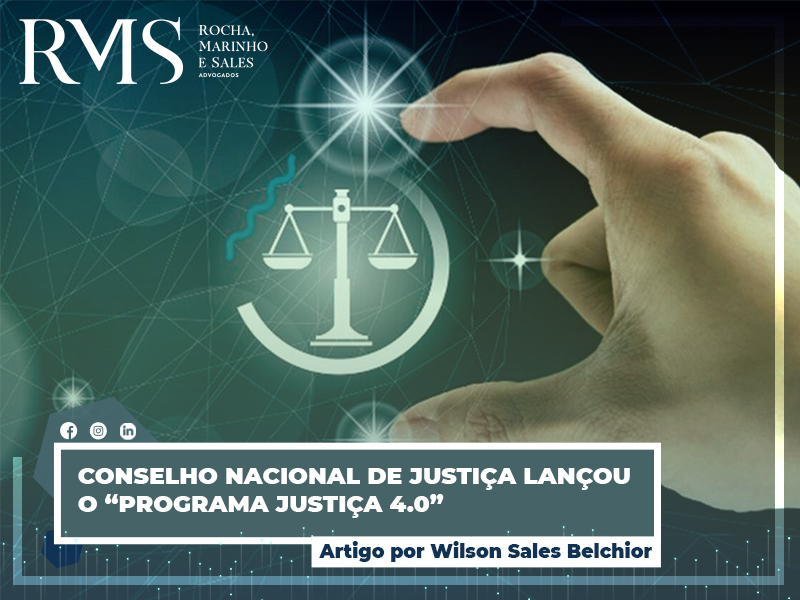
(PT) RMS Advogados adere ao selo Obra Lumen de Responsabilidade Social
Sorry, this entry is only available in PT.

The National Council of Justice launched, at the end of February 2021, the “Justice 4.0 Program – Innovation and effectiveness in the realization of Justice for all”. The initiative covers the “100% Digital Judgment” (Resolution nº 345/2020), the Digital Platform of the Brazilian Judiciary Power (Resolution nº 335/2020) and the support to the Courts in the operationalization of the National Database of the Judiciary Power (Resolution nº 331/2020).
Certainly, as Minister Luiz Fux stated at the launch of the program, there is a “new reality for the Judiciary”, which requires attention and adaptation from the legal community. The moment is to observe and discuss the changes, as well as to organize new practices that resignify themselves through the implementation of innovations.
The program seeks to promote access to digital justice through new technologies and Artificial Intelligence, at the same time as the institutional improvement of the Judiciary is based on the approach to the citizen. After the presentation and the meetings with the teams of the Courts are carried out, technical cooperation agreements will be formalized, in order to incorporate technological innovations according to the needs and difficulties of each jurisdictional reality.
Among the actions that are part of “Justice 4.0”, the “Sniper” tool aimed at asset recovery through the provision of subsidies to magistrates and civil servants that contribute to reducing the procedural assets in the execution phase; and the “National System of Seized Goods” (SNBA), which will manage and allocate the material resources seized by court order.
The program is not a one-off change. However, it integrates a strategy for digital transformation of the national justice system with initial planning for the next five years (Resolution No. 370/2021). This includes the preparation of planning instruments, monitoring the technological maturity of the agencies, governance program and the development of innovation in a collaborative manner.
These changes reveal, particularly to the law, in addition to challenges, diversified opportunities for professionals who are open to changes and attentive to new requirements. Therefore, it is essential to understand the way in which the new technologies incorporated both to the Judiciary and to the legal services, facilitate the design of assertive solutions for the needs of the constituents.
Wilson Sales Belchior

Sorry, this entry is only available in PT.

Sorry, this entry is only available in PT.